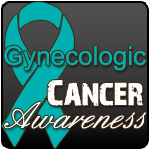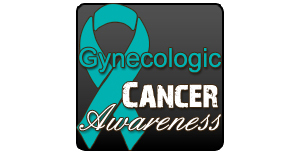 September is Gynecologic Cancer Awareness month. Five main types of cancer affect a woman’s reproductive organs: cervical, ovarian, uterine, vaginal and vulvar. As a group, they are referred to as gynecologic cancers. Each gynecologic cancer is unique, with different signs, symptoms, and risk factors (things that may increase your chance of getting cancer).
September is Gynecologic Cancer Awareness month. Five main types of cancer affect a woman’s reproductive organs: cervical, ovarian, uterine, vaginal and vulvar. As a group, they are referred to as gynecologic cancers. Each gynecologic cancer is unique, with different signs, symptoms, and risk factors (things that may increase your chance of getting cancer).
All women are at risk for gynecologic cancers, and risk increases with age.You can lower your risk for some of these cancers. As a woman, I encourage you to pay attention to your body and know what is normal for you, so that you can recognize the warning signs of cancer and seek medical care. When gynecologic cancers are found early, treatment is most effective.
Here are 9 symptoms of gynecologic cancers that every woman should watch for. Alert your doctor if these symptoms appear, especially if you have already gone through menopause.
- Abnormal vaginal bleeding. More than 90% of women diagnosed with cancer of the uterus experience irregular bleeding. If you have already undergone menopause you should be evaluated if you have ANY vaginal bleeding or spotting. If you haven’t gone through menopause you should see a doctor about bleeding between periods, heavy bleeding or bleeding during sex.
- Vaginal discharge colored with blood. Bloody, dark or smelly discharge usually signals infection. But sometimes it is a sign of cervical or uterine cancer.
- Constantly needing bathroom breaks. Do you constantly need to use the bathroom or feel continuous bladder pressure? This may be a sign of cancer. Take note especially if you also feel full, have abdominal pain or experience bloating.
- Pain in the pelvis or abdominal area. Persistent abdominal pain or discomfort — including gas, indigestion, pressure, bloating and cramps — can signal ovarian cancer. Also, constant pelvic pain or pressure can be a sign of uterine cancer.
- Belly bloat. Women often feel bloated after eating or drinking a lot, especially during their menstrual cycles. But, if you continue to feeling bloated for more than two weeks or after your period ends you may have ovarian cancer.
- Loss of appetite or constantly feeling full. Are you never hungry anymore or constantly full? These appetite changes may be signaling ovarian cancer.
- Unexplained weight loss. If you suddenly lose more than 10 pounds without changing diet or exercise habits you should consult your doctor.
- Swollen leg. Does one leg look or feel swollen for no reason? This may be a sign of cervical cancer. Typically, though, a swollen leg isn’t a sign of cancer unless there’s also pain, discharge or other cervical cancer symptoms.
- Persistent indigestion or nausea. Feeling queasy for an extended period of time? Occasionally, persistent indigestion or nausea can signal gynecologic cancers, so play it safe and see your doctor.
Warning signs are not the same for everyone. I encourage you to know what is normal for you and if you think something is wrong see your doctor. Ask questions, get the facts. Paying attention can save your life. I know it happened to me. I am a survivor of ovarian cancer.
This column is no substitute for seeing your own health care provider.
Dr. Paula Dhanda is a practicing physician in Kelseyville. She is the founder of Worldwide Healing Hands. She may be reached at 279-8733 or visit https://drspecialtycare.com/ or http://www.worldwidehealinghands.org/.

